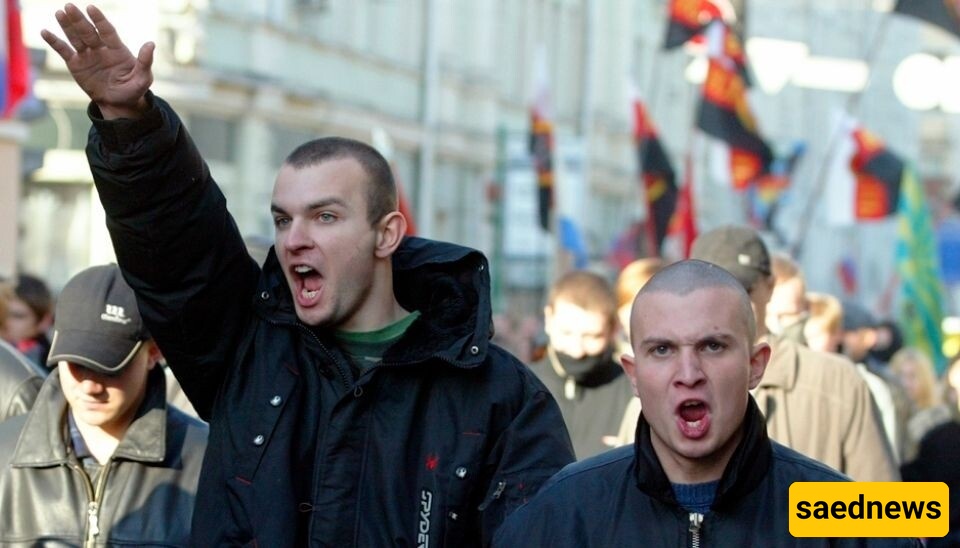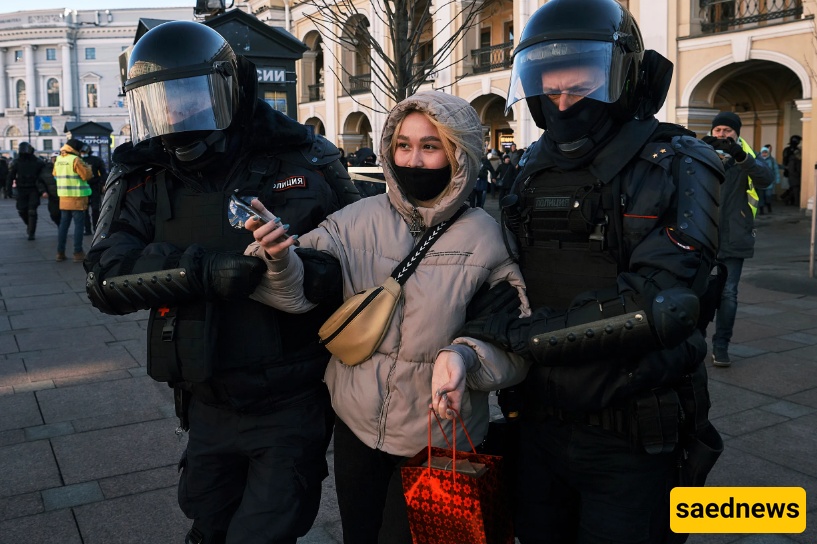SAEDNEWS: In Russia, security authorities are intensively monitoring users’ behavior in cyberspace and seeking to identify what they call “extremism.” This move has raised concerns about restrictions on freedom of speech and extensive internet control in the country.

According to Saed News, quoting France 24: In recent months, Russia has paid special attention to the online activities of its citizens and has intensified efforts to identify and confront what authorities call “extremism.” This trend has raised widespread domestic and international concerns about restrictions on freedom of expression, information control, and cyberspace in the country. Reports indicate that the Russian government has established an extensive network to monitor internet users’ behavior using legal and technical tools, including social media, news websites, and even private messaging platforms.

This new approach is part of Russia’s broader policies to maintain internal stability and counter threats that its authorities define as “extremism” or “terrorism.” However, the definition of extremism in Russian law is broad and sometimes ambiguous, which has resulted in many legal actions and civil activities online falling under these laws. Human rights experts warn that this situation could lead to the suppression of fundamental freedoms and restrictions on independent media activities.
From a technical perspective, Russia uses advanced technologies, including data analysis algorithms and artificial intelligence, to monitor users’ activities. Technology companies are required to identify and report suspicious content, and failure to comply may result in heavy fines or service blocks. In addition, some foreign platforms operating in Russia are pressured to host their servers domestically, facilitating Russian authorities’ access to user data.
One direct consequence of this policy is the increase in self-censorship among internet users. Russian citizens are gradually becoming more cautious and refrain from expressing critical opinions or engaging in political discussions online. This situation not only affects freedom of expression but may also limit the free flow of information and social critique. Many analysts believe that this trend is gradually pushing Russia’s media environment toward full government control.
At the international level, Russia’s actions have drawn attention and criticism from human rights organizations and other countries. International bodies, including the UN Human Rights Commission and internet freedom advocacy groups, have warned about the risks of suppressing civil and media activities in Russia. They emphasize that pursuing “extremists” should not be an excuse to limit citizens’ fundamental freedoms, and governments must balance security with individual rights.
Reactions within Russia are varied. Some citizens support government measures, considering them necessary for national security, especially amid rising internal and international threats, including civil protests or opposition activities. However, civil society and human rights groups view these measures as tools of pressure and repression that may increase public distrust of the government.
It is noteworthy that online monitoring and control in Russia is not limited to domestic users. Russian authorities also seek to restrict foreign content and control access to foreign websites and social media. These policies have led to many international media and foreign platforms being restricted or filtered in Russia, forcing citizens to use circumvention tools to access international information.
Technology and cybersecurity experts also argue that this approach may have economic and innovation impacts in Russia. Extensive internet restrictions and pressure on technology companies can weaken the digital business environment and reduce foreign investment. At the same time, these policies may push young people and skilled tech workers to seek opportunities abroad, potentially reducing Russia’s capacity for digital innovation and development.
A prominent aspect of this trend is the increase in legal prosecution of internet users. In recent years, dozens of people in Russia have been arrested for posting “extremist” content or participating in “banned” online groups. Some were prosecuted merely for sharing critical posts or participating in political discussions online. This trend has prompted human rights organizations and independent journalists to warn of increasing digital repression and threats to freedom of expression in Russia.
From a cultural and social perspective, these policies have also influenced user behavior. Many Russian citizens have spontaneously created private and encrypted networks to communicate and share information. Civil society groups and human rights activists use these private spaces for awareness, education, and organizing activities. However, Russian authorities attempt to monitor even these private channels, using advanced technical tools to detect suspicious activities.
Russia’s experience in monitoring cyberspace can serve as a case study on how governments interact with the internet and national security in the digital age. It demonstrates that the balance between security and individual freedoms in cyberspace is fragile, and any move toward full control may have wide-ranging social, economic, and political consequences.
Ultimately, Russia’s internet monitoring and pursuit of what it calls “extremists” is part of a broader global trend faced by many countries: managing cyberspace and cybersecurity while preserving individual freedoms. Russia’s experience can act as a warning to other countries that extensive internet restrictions and repression of online freedoms can have long-term social, political, and economic consequences.
In summary, Russia’s recent actions to control online behavior and pursue what it calls extremism have not only raised human rights concerns but also have broad political, economic, and cultural implications. This trend presents major challenges for citizens, tech companies, and governments and demonstrates that the future of online space and freedom of expression in Russia and other countries will continue to be marked by uncertainty and tension.

